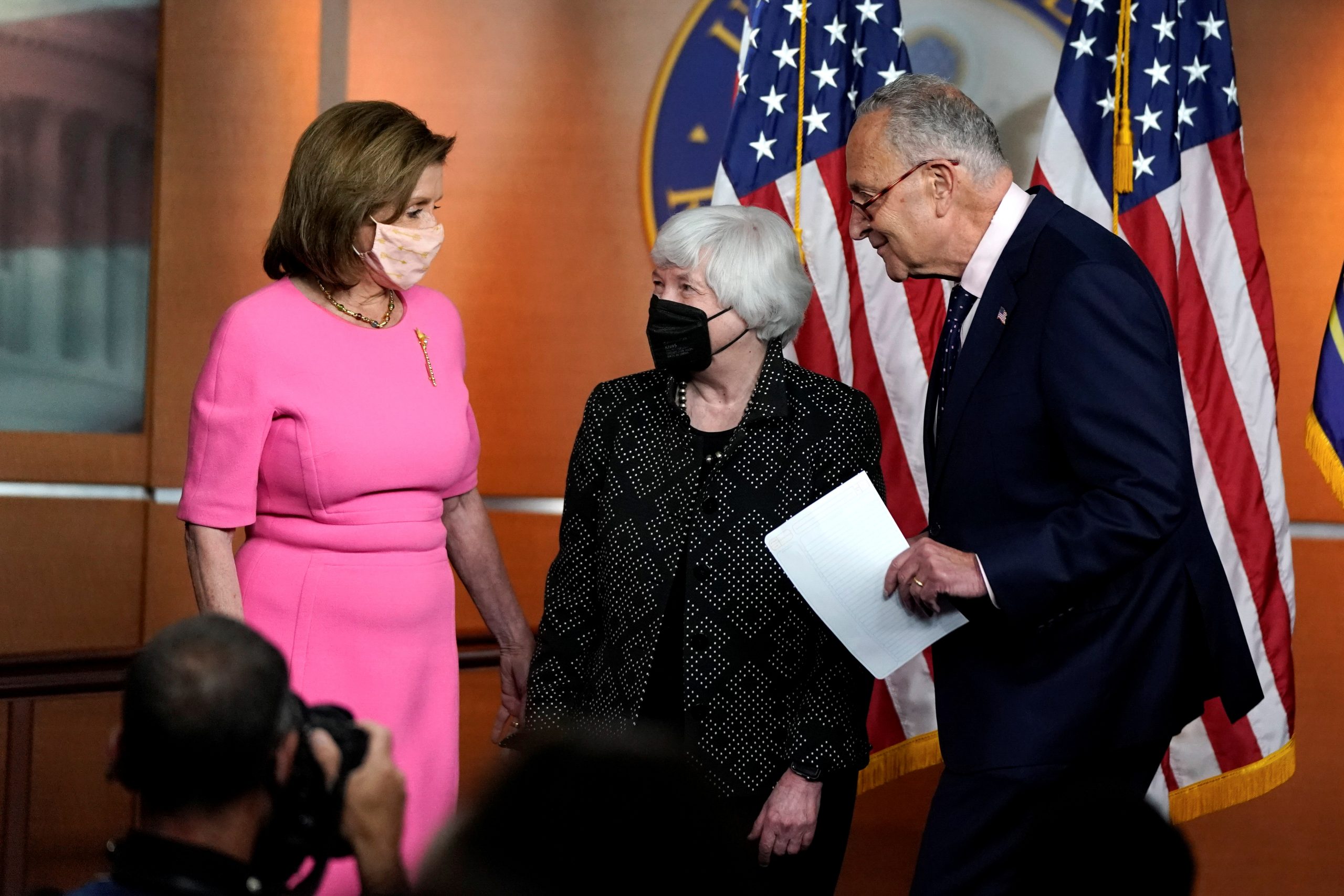
Willie R. Tubbs, FISM News
[elfsight_social_share_buttons id=”1″]
As a vote on a $3.5 trillion spending bill looms, Democrats are still struggling to find enough cohesion to get the legislation to the president’s desk.
The U.S. has until Friday to pass a spending bill that would prevent what would be the 11th government shutdown since 1980 and the first since 2018-19 and raise the debt ceiling to avoid the nation form defaulting on its bills.
As expected, President Joe Biden’s “Build Back Better” initiatives have faced a united Republican opposition in the Senate. More surprisingly, these initiatives have also encountered a lack of support from his own party.
House Speaker Nancy Pelosi (D-Calif.) indicated last week that she’d call for a vote as early as Monday, but on Sunday told ABC’s “This Week” she might delay this move because of a lack of support.
However, Pelosi reiterated to “This Week” and on Twitter that her party was sufficiently unified on core issues. “House Democrats are united by our values and our unshakeable commitment to meeting the needs of America’s working families,” Pelosi tweeted Sunday.
In a Senate split 50-50 – and with Senate Republicans having pledged to vote against the spending legislation, due to it being created without their input – every Democrat vote is essential.
The core of the legislation has garnered sufficient Democratic support:
“China is trying to take our place as the economic leader of the world,” Sen. Jon Tester (D-Mont.) tweeted Friday. “A default on our debts would be like handing them the keys to the car. The American people pay their bills, and Congress must work in a bipartisan way to do the same.”
However, the spending bill also contains significant and profound social policy changes and major tax increases that have led moderate Democrats to balk.
Tester, Joe Manchin of West Virginia, and Kyrsten Sinema of Arizona have all expressed concerns over the tax hikes that would be required to fund free preschool and community college, paid family and medical leave, money for elder care, expanded Medicare benefits, and extended child tax credits.
Manchin released a statement of why he opposed the $3.5 trillion price tag on Sept. 2.
The Democrats enjoy a slim majority in the House, but recent bills that have passed in the lower chamber have done so despite Democratic quarrelling.
Last week, Democrats clashed over $1 billion in aid of Israel’s air defense system, which led to a notable exchange on the floor of the House over the characterization of Israel as an “apartheid state” and Rep. Ted Deutch (D-Fla.) accusing Rep. Rashida Tlaib (D-Mich.) of antisemitism. As this bill enjoyed the support of Republicans and almost all Democrats, it passed the House easily.
The National Defense Authorization Act (NDAA) for Fiscal Year 2022 also proved contentious but it passed the House on Wednesday, 316-113. In that vote, both Democrats and Republicans had defectors on what was labeled (and has traditionally been) a bipartisan bill.
Tlaib and Rep. Ilhan Omar (D-Minn.), as well as Rep. Alexandria Ocasio-Cortez (D-N.Y.), were vocal in their opposition with both Tlaib and Omar releasing statements critical of the defense spending.
While the spending bill has highlighted the Democratic split, other issues have begun to exemplify a growing fracture.
On Wednesday, when news broke that the Department of Homeland Security sought a contractor to run a migrant detention center at Guantanamo Bay, Ocasio-Cortez labeled the act “utterly shameful” in a Tweet.
A week prior, Tester was strident in his criticism of President Biden’s decision to keep the U.S.-Canada border closed for another month.
This week will be telling as to whether Democrats can find a common ground or if their fracture will prevent them from pushing through their aggressive liberal policies.
